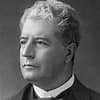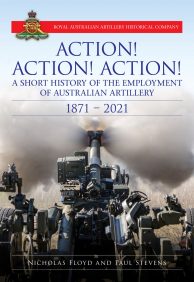
Quick and Efficient Training: The New Modular System at Kapooka
Kapooka’s recruit training is set to be accelerated by 25% with the introduction of the Army Initial Foundation Training continuum, now undergoing its second stage of trials.
The innovative course comprises three 21-day modules, ensuring recruits transition seamlessly from their initial induction to mastering combat behaviors and foundational warfighting. The aim is to produce soldiers with the same competency as those from the former Army Recruit Course.
Brigadier Jason Groat, the Commandant of the Land Combat College, emphasized the need for a revamped training approach. “Our trials at Kapooka demonstrate our ability to produce highly skilled soldiers in a shorter span by modifying our traditional training methods,” he commented. He added that adjustments would be made wherever necessary.
The continuum provides a unified training route for both full-time and part-time recruits. Moreover, it is set to be incorporated into the initial entry training (IET) for cadets of the Royal Military College in Duntroon, starting from January 2024.
The three modules, labeled A, B, and C, are structured for gradual, scalable learning:
- Module A is the foundation for both reserve and full-time recruits. It delves deep into inculcating combat behaviors and fulfills mandatory training prerequisites. Upon completion, reserve recruits will receive extended training at their units before embarking on IET courses.
- Module B advances recruits with service mastery and reinforces combat behaviors. This stage allows recruits to gain advanced weapon expertise, reaching up to Rifle Practice 3A, supplemented by rigorous physical training and resilience-building exercises.
- Module C is tailored for full-time recruits, providing them with the requisite warfighting skills and qualifications to proceed to IET for their designated corps or trade.
After commencing its second trial on August 22, the program’s efficacy will be assessed, with the possibility of it fully replacing the existing Army Recruit Course by January 2024.
The modularity of this system offers flexibility, enabling swift adaptation to evolving strategic situations. “For instance, we can swiftly generate soldiers qualified in Module A to address large-scale natural calamities or pandemics,” stated Brigadier Groat. He also pointed to the potential of promptly enhancing the skills of Reserve soldiers during other strategic situations.





As an ‘old school trainer’, who cut his teeth on NS men during the 77 Days fulltime NS training, I’ll reserve judgment until I’ve had an opportunity to assess the products of this new system. At present it all sounds like a lot of ‘managerialist’ language that tells me very little about the actual content. One thing I noted is that graduates from Module A will be able to help out with natural disasters. In my experience this equates to being able to do as you are told and being able to fill sandbags, carry luggage and load it onto buses and trucks. How about the plant and amphibian operators; where do they come in?
It was also my experience during the early 60s that recruits fresh out of Kapooka and passed on to Corps schools had gaps in their basic training, including never having thrown a grenade or fired the OMC; shortcomings that the Corps school had to rectify. In the late 60s/early-70s, I encountered many reruits, that were being prepared for individual reinforcements for Vietnam service, who had practically no idea of living in the field, were decidely ‘iffy’ with their weapons handling and had to learn a lot from the pre-embarkation course.
Good luck, young soldiers!